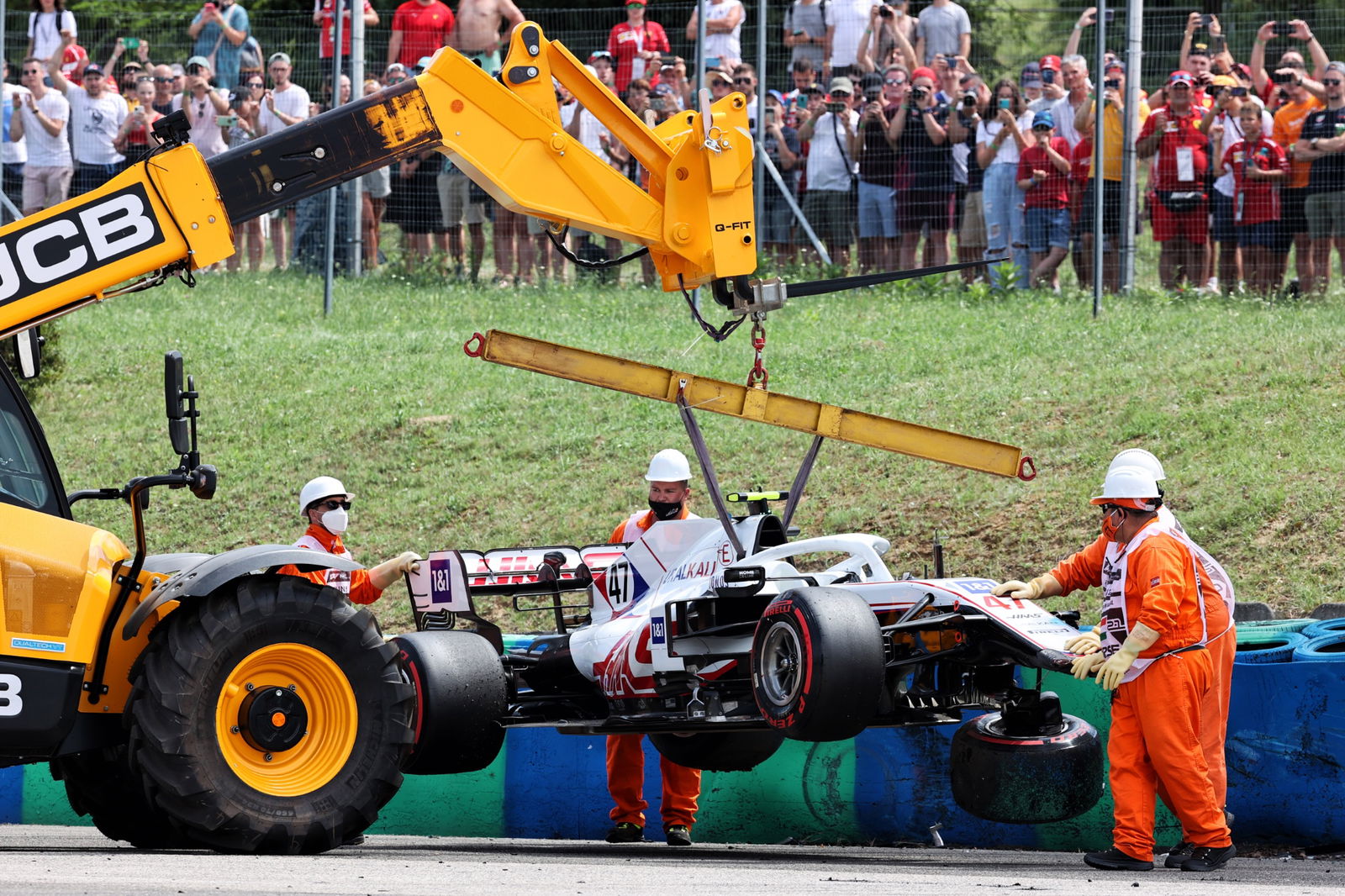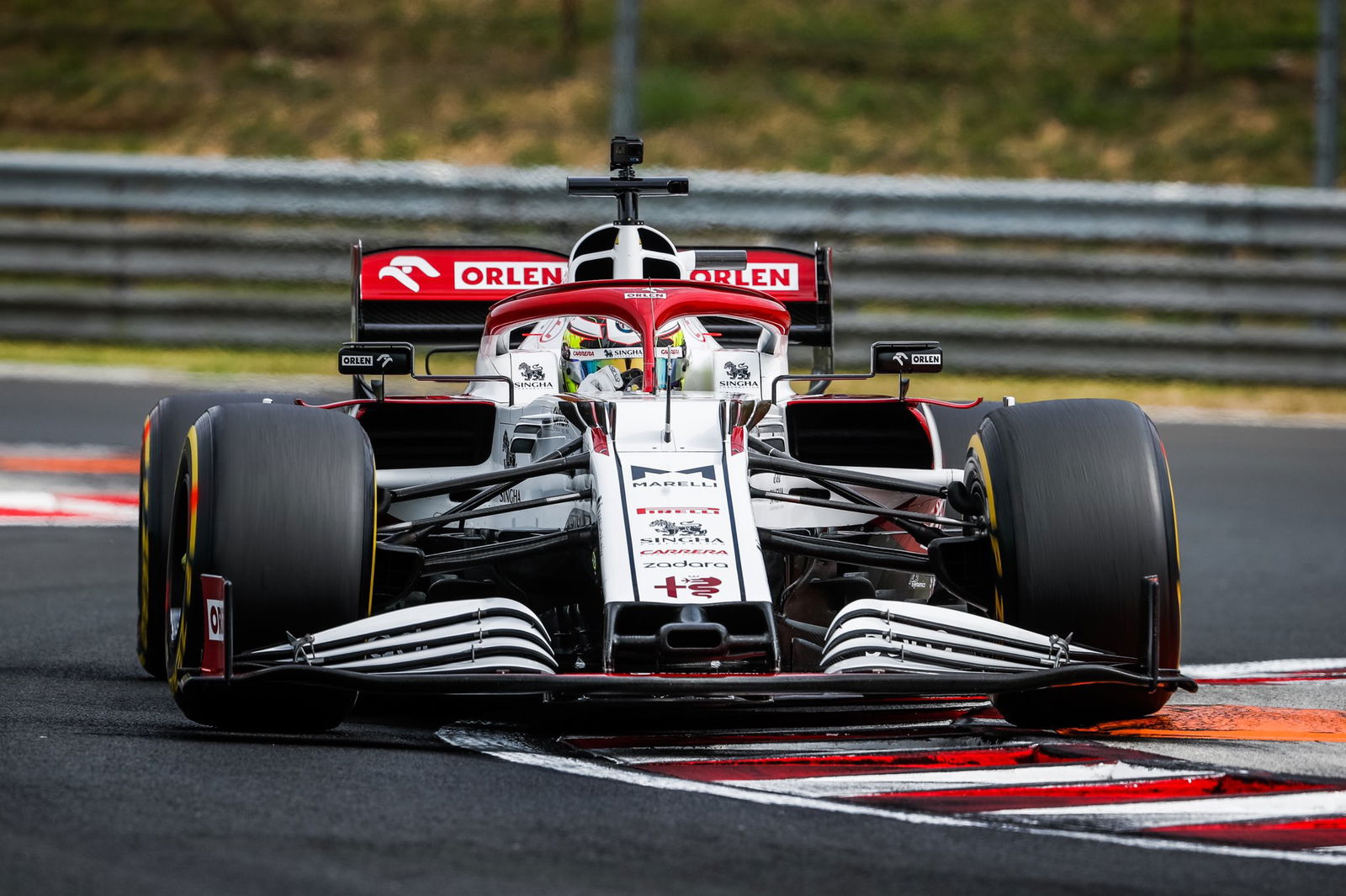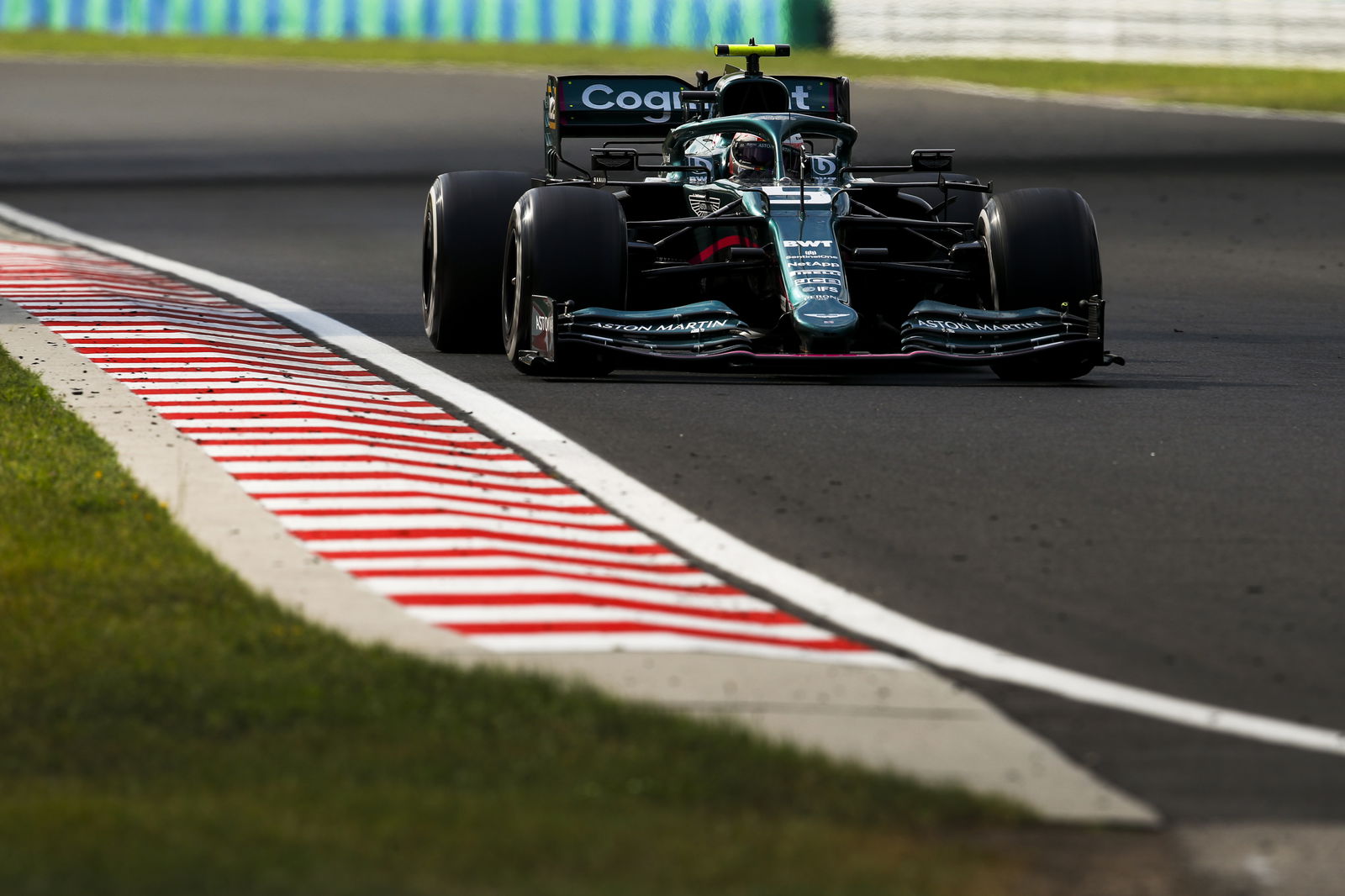Should guilty rivals pay for F1 crash damage? Teams at odds over cost cap rules

In the wake of huge damage bills across the past two races, Red Bull team principal Christian Horner has led the calls for a rethink over F1’s cost cap regulations.
Red Bull claimed Max Verstappen’s massive 51G shunt at Silverstone following contact with title rival Lewis Hamilton resulted in repairs costing $1.8 million.
Both Red Bull cars sustained extensive damage when Verstappen and Sergio Perez were caught up in the first corner carnage triggered by Mercedes’ Valtteri Bottas in Hungary, with Horner revealing fears that Perez’s engine was a write off for the rest of the season.
“It’s hugely frustrating for Honda as it’s not due to reliability, it’s because of accidents that we haven't caused,” Horner said. “So they're feeling the brunt of this as well as we are on the chassis side.
“It’s not to be underestimated on the cost cap side. It’s something that does need to be looked at it because in a cost cap environment, it’s brutal, the incidents we have had during the last couple of weeks.
“Obviously you’ve got to look at what’s within the cap. It’s spare parts; the engines as well are particularly concerning. I think we need to revisit this with the FIA as it’s something that can affect all teams, not just Red Bull.”
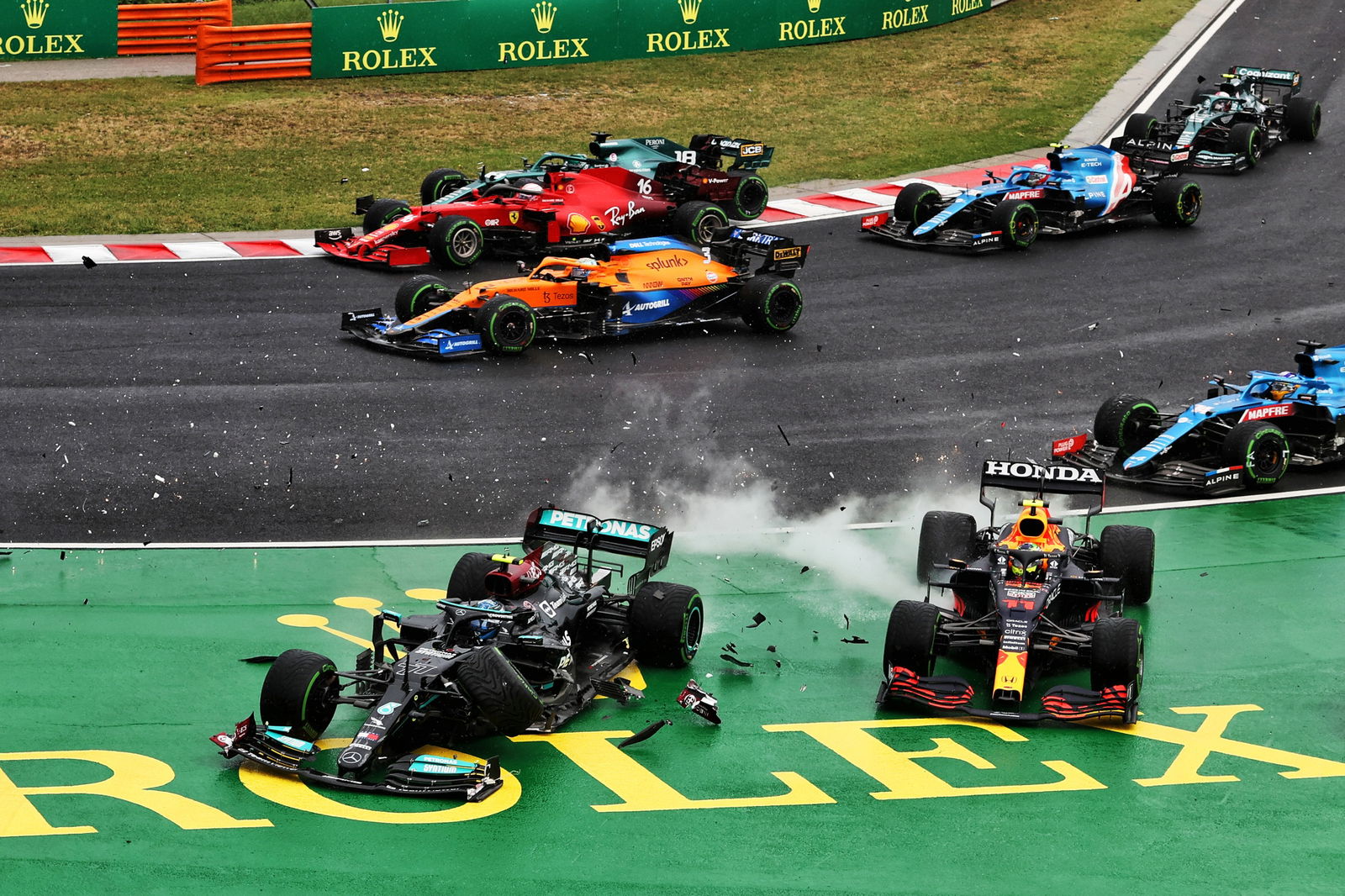
Ferrari also lost a car in the melee, with Charles Leclerc eliminated on the spot following a hit from Aston Martin’s Lance Stroll. Both Bottas and Stroll have received five-place grid penalties for the Belgian Grand Prix later this month for causing the collisions.
Following an inspection after the race, the Italian outfit revealed this week that Leclerc’s engine has been “irreparably damaged”, meaning the Monegasque is “highly likely” to face a grid penalty later in the season for surpassing permitted power unit components.
Ferrari supported Red Bull’s stance, with team principal Mattia Binotto proposing the idea that teams should have to foot the repair bill of other cars if their driver is found guilty of causing the accident.
“I think there is value for discussions in the near future with the other team principals, FIA and F1,” Binotto said.
“Obviously if you're not guilty, having such damage in the budget cap is something which is even more of a consequence now. Should we add exemptions? I'm not sure that’s the solution. I think it may be very difficult to be policed.
“But I think that what we may consider is that if a driver is faulty, the team of the driver should pay at least to the other teams for the damages and repairs. That will make the drivers more responsible.”
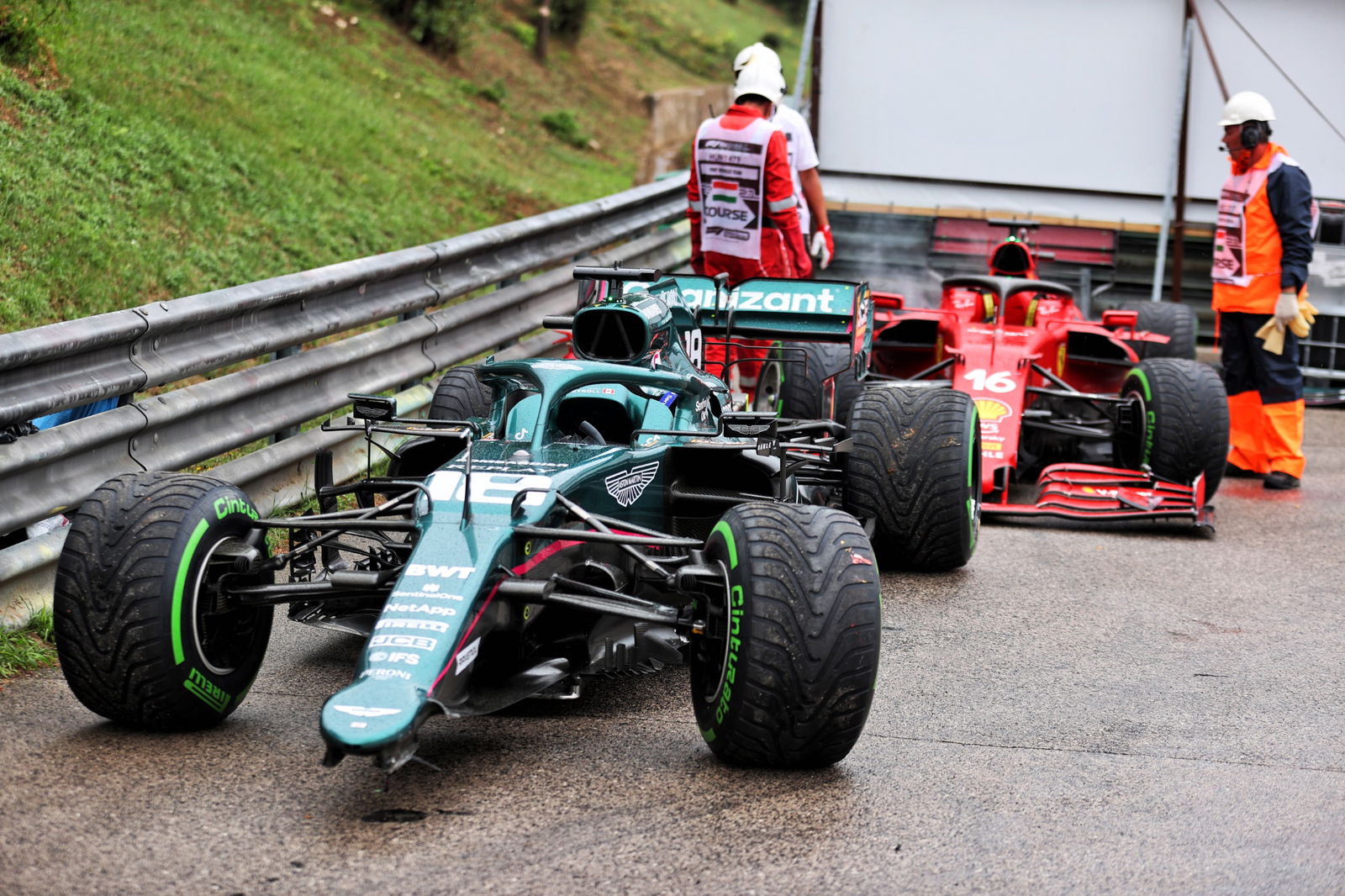
McLaren endured a miserable Hungarian GP and came away from Budapest with zero points after Lando Norris was eliminated after being rear-ended by Bottas. Daniel Ricciardo also suffered race-ruining damage in the Turn 1 chaos as he limped home to 11th.
Asked if he agreed with Red Bull that the situation needs to be re-evaluated, McLaren team boss Seidl replied: “No, not at all.
“I definitely will not go in the direction that Christian is going, mentioning every second sentence the cost cap and how much it will be hurt by it by an accident on track.
“In the end, it’s part of the game we’re in - it’s down to us to manage the budget in the right way.
“It will be a challenge to make sure now we have again enough parts of the new specification available for Spa but on the other hand, we have a great team back home in production and the engineering side, so I am confident we can recover from what happened.
“I don’t see that it affects anything of our plans, to be honest. It is quite simple and straightforward. At the beginning of the season, based on the experience of previous years, you simply have to account for certain crash damage per year.
“That’s what you have to figure in and that’s what we have in the budget and that’s the challenge that we are in. It’s the same for everyone.”
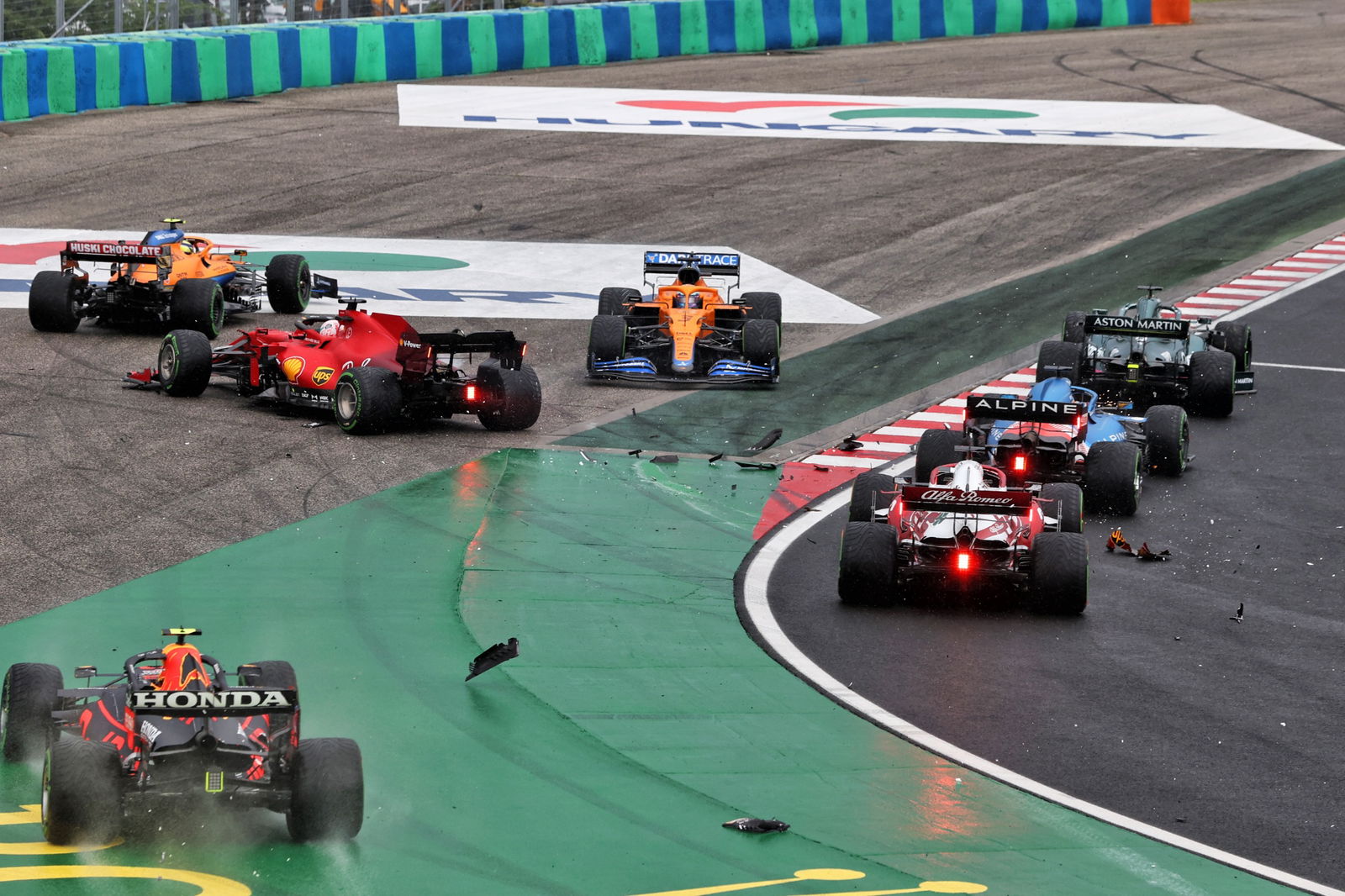
And what of the teams at the back of the grid?
After Mick Schumacher crashed in FP3 and ruled himself out of qualifying at the Hungaroring, Haas team principal Guenther Steiner admitted he was fed up with crashes becoming “too frequent and too heavy” for his side.
Schumacher also suffered big qualifying shunts in Monaco and France, with the former alone costing Haas up to $500,000.
Despite this, Steiner insisted he has no issue with the current regulations.
“I think we need to live with it, we need to budget for it,” he explained. “We need to be flexible enough, that’s just good management.
“Because then all of a sudden we have less crashes, do we bring the budget cap down again? I think it’s part of racing and will be part of how much risk you take and what you do.
“I think it’s part of racing, crashes. You cannot adjust the budget or the regulation, going off how many crashes you’ve got. For me, no change is needed on this one.”
